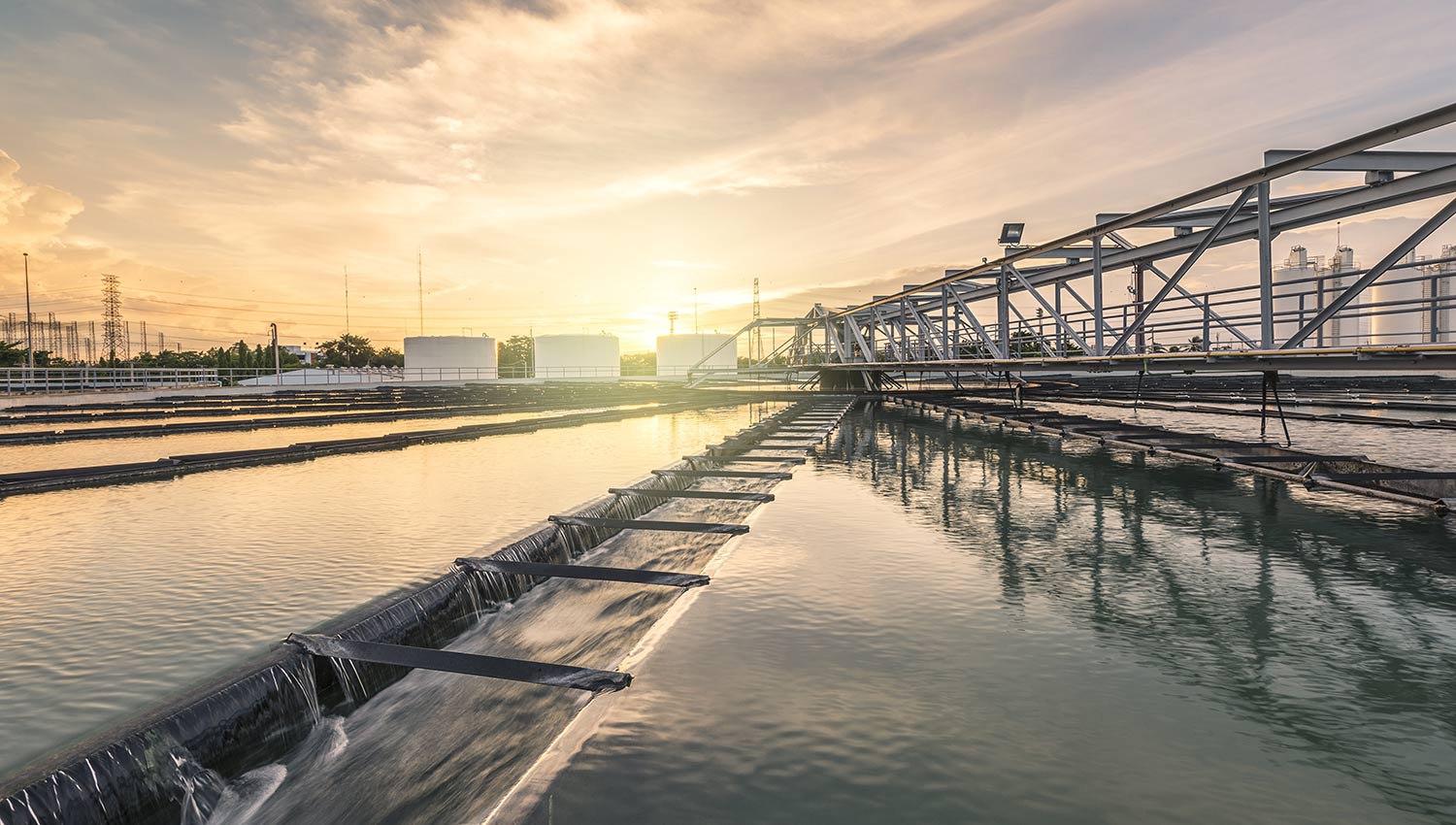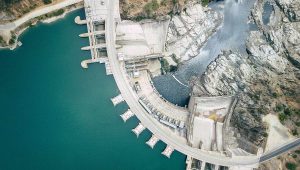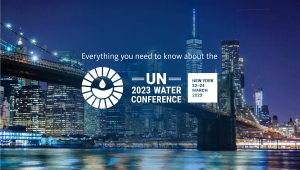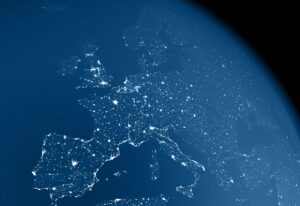Unpacking freshwater’s role: Climate mitigation measures in drinking water and sanitation services
Wastewater collection, treatment, and discharge all contribute to the direct emissions of greenhouse gases from the decomposition of organic matter. In addition, drinking-water and wastewater management are often associated with indirect emissions from energy-intensive processes. Reducing the release of greenhouse gases in wastewater, sanitation, and drinking water processes is therefore a great opportunity for climate change mitigation.
What is the role of freshwater in climate change mitigation?
This spring, Swedish Water House will host a webinar series diving into the chapters of the recently launched report “The essential drop to reach Net-Zero: Unpacking Freshwater’s Role in Climate Change Mitigation”.
In this first webinar of the series, we present findings from the chapter “Mitigation measures in drinking water and sanitation services”. Chapter lead authors and guests will discuss how improvements in the delivery of drinking water and sanitation services can contribute significantly to climate mitigation solutions.
Watch the recording
Enable cookies to show the video below. Or watch it directly on YouTube.
Agenda:
Welcoming notes
- Moderator Dr. Malin Lundberg Ingemarsson, Stockholm International Water Institute
Chapter presentation
- Ricard Gine, Stockholm International Water Institute & Jacek Makinia, Gdansk University of Technology
Water insights from Nationally Determined Contributions
- David Hebart-Coleman, Stockholm International Water Institute
Case studies:
- Mapping Water’s Carbon Footprint – Tallulah Lutkin, Global Water Intelligence
- Upcycling sludge for climate change mitigation, water security, and economic opportunities in Jordan – Nadine Ghantous, GIZ & Suhaib Ababneh, GIZ
Closing remarks
- Jose Gesti, Sanitation and Water for All
Speakers:
Ricard Gine is an advisor for Sustainable Services at the Department of Water and Sanitation at SIWI. He provides core expertise, promotes research, and advances knowledge with the aim of strengthening WASH systems and promoting sustainable delivery of services. Prior to joining SIWI, he has been working as a researcher at the Technical University of Catalonia, and has 15 years of experience working with water and sanitation issues in East and Southern Africa and in Latin America.
Prof. Jacek Mąkinia is Head of Department at the Faculty of Civil and Environmental Engineering at Gdansk University of Technology. He is a member of the International Water Association’s Strategic Council and the Secretary of the Specialist Group on Nutrient Removal and Recovery.
David Hebart-Coleman is an environmental planning and policy expert, with over 15 years of experience in environmental policy development. His professional background is in local and regional government in New Zealand. Most recently, he provided water resources and climate change adaptation services as an expert within the African Water Facility in Cote D’Ivoire.
Tallulah Lutkin is utility performance editor at Global Water Intelligence, where she covers innovations and solutions by water and wastewater utilities worldwide. She also leads GWI’s Water without Carbon initiative, which researches and reports on GHG emissions and net zero initiatives from the water sector.
Nadine Ghantous is a Technical Advisor in Water and Sanitation at GIZ focusing on projects related to the water sector aiming to introduce GHG emission and Energy reduction technologies for the urban water cycle, sludge management, and reuse.
Suhaib Ababneh is a Technical Advisor in Sustainable Sludge Management Project at GIZ focusing on projects related to finding ecological and economical solutions for sludge management in Jordan.
Dr. Malin Lundberg Ingemarsson is Programme Manager at SIWI and is working on the links between water, landscapes, biodiversity and climate change. More recently, she has coordinated the work with the report “The essential drop to reach Net-Zero: Unpacking Freshwater’s Role in Climate Change Mitigation” and authored the chapter on climate mitigation measures for land systems.
Unpacking Freshwater's Role in Climate Change Mitigation
The UN 2023 Water Conference, which takes place in March this year, is an opportune moment to highlight the vital role of water in climate mitigation. Freshwater is a finite resource exposed to overexploitation and is being put under increasing pressure from the changing climate.
The report “The essential drop to reach Net-Zero: Unpacking Freshwater’s Role in Climate Change Mitigation” is the first ever summary showing the connections between freshwater and climate mitigation, and how they are inextricably linked. The report shows that water is much more important in mitigating climate change than previously understood. By considering freshwater in climate mitigation measures, water risks can be avoided, and win-win solutions for water and climate can be used to their fullest potential.
Read the report:
The essential drop to reach Net-Zero: Unpacking Freshwater’s Role in Climate Change Mitigation
The report is developed in joint effort by Stockholm International Water Institute (SIWI), Federal Ministry of Economic Cooperation and Development of Germany (BMZ), German Corporation for International Cooperation (GIZ), The Potsdam Institute for Climate Impact Research (PIK), United Nations Development Programme (UNDP) and Stockholm Resilience Centre (SRC).
Unpacking freshwater’s role
The report 'The essential drop to reach Net-Zero: Unpacking Freshwater's Role in Climate Change Mitigation' shows a new way of thinking about climate change that can lead to more effective solutions.
Explore the chapters











